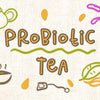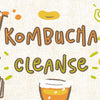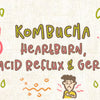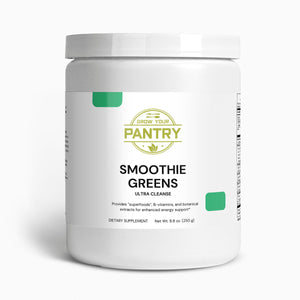Is Kombucha Bad For Your Teeth? The Expert Guide
Kombucha could be bad for your teeth. There are many varieties and variations of kombucha; differences include brewing methods and ingredients added, therefore making it difficult to answer this in a yes, no way. In this blog post, we'll breakdown the ingredients used to make kombucha, the effects of pH on teeth, and give a definite answer with actionable advice for preventing tooth damage when drinking kombucha.
What Causes Kombucha To Have An Effect On Your Health?
[PH, Acidity, And Effect On Teeth]
The ingredient and acidity found in a kombucha beverage could strip the teeth of enamel, in an extreme case leaving them exposed to higher chances of cavities, infections, and decay. By breaking down each potentially harmful ingredient, we can look at the cause and give methods to combat the adverse effects.
PH - The pH of kombucha is between 2.5 - 4. It has to remain at a low pH during the brewing and bottling phase to prevent any harmful bacteria from growing. Low pH levels indicate an acidic brew. Acid, when it interacts with your mouth, wears the enamel down. With less enamel to protect your teeth, color can change, and you'll be more susceptible to infections, decay, and cavities.
Sugar - Sugar is notorious for rotting teeth, so much so that many parents ban children from eating candy. When sugar is consumed, it interacts with the plaque that surrounds your teeth; the interaction creates an acidic environment. In the same way, pH effects teeth, sugar also leads to possible infections, decay, and cavities.
Tea - Many associate teas adverse oral health effects with the staining of teeth. Tea contains an ingredient called tannin. Tannin is thought to stain teeth. The darker the brew of tea, the more stained your teeth will become. Most kombucha isn't dark in color as the tea is steeped for a relatively short period.
How To Drink Without Affecting Your Teeth
There a few ways to reduce the harmful effects of kombucha on our teeth. From a simple change of ingredient, like switching from black tea to Rooibos, or by altering our brewing method.
Here Are A Few Actionable Steps We Can Take:
Higher PH - When brewing, your batch, keep the pH towards the higher end of the critical range. If you're worried about oral health, then this small adjustment will help. The brewing range is typically between 2.5 - 4, so aim for the top end while making.
Low Sugar Varieties - Brew or consume a batch that has less sugar per serving. Less sugar around your teeth causes less acid to be produced. You are aiding in keeping the enamel of your teeth in full health. The easiest way to reduce the amount of sugar when brewing is to allow for your tea to ferment for longer. When tasting the brew, you'll be able to judge how sweet or sour it is.
Tea With Low Tannin Levels - By brewing your tea with a low tannin variety such as Rooibos. Rooibos kombucha recipes can be easily found online, such as Rude Health Rooibos Kombucha Recipe.
Rinse Your Mouth Out - By gurgling water around your mouth before swallowing, you'll dislodge or remove sugar that would otherwise be stuck in your teeth. Perform a mouth rinse after drinking your beverage.
Drink While Eating - If you consume kombucha while you're eating, then the adverse oral health effects are likely to be less. The alternative whereby you consume kombucha between meals and let it sit in your mouth could have detrimental effects.
Wait 30 Minutes Before Brushing Your Teeth - After consuming a sugary or low pH drink, the enamel of your teeth will be soft. By waiting 30 minutes before brushing your teeth, the enamel should become hard again for you to brush, to remove sugar and acid, without compromising the enamel layer.
Drink Through A Straw - It's not uncommon to see people drink red wine through a straw, so it doesn't stain their teeth. You could also do this when drinking kombucha. By drinking through a straw, it reduces the amount of sugar, acid, and staining chemicals in kombucha, which should aid in keeping your teeth healthy.
What Do Dentists Say?
The rising popularity of kombucha has brought with it some concerns too. There have been media reports of dentists warning against the consumption of kombucha for the possible adverse effects of kombucha.
Here Are A Few Dentists' Opinions:
Dr. Sulitzer - "the acidic pH found in kombucha also allows the 'bad' bacteria already found in your mouth to potentially create an unhealthier environment for your gums," - Source: MSN.COM.
Dr. Ehrlich - "While it may be good for gut health, that is another example of linear rather than holistic thinking… To call it "healthy" is debatable." Source: dailymail.co.uk.
Common Questions
Kombucha For Tooth Infections
Some people have suggested that because kombucha contains many anti-bacterial properties, it could be used as a natural antibiotic to help with tooth infections. Although there could be some truth in this, it's still always recommend seeing your dentist or physician and to seek professional medical advice.
Gargling With Kombucha
If you're looking for optimal oral health, it probably is not suggested to gargle with kombucha. By gargling with kombucha, you'll likely leave sugar and acid to be exposed to your teeth, which could result in worsened oral health.
Should You Keep Drinking Kombucha?
Yes, for almost everyone, kombucha and oral health shouldn't be a concern and can be included as part of a healthy balanced diet. If you're concerned about the consequences of your teeth, then you can follow our actionable steps to prevention.
Can Kombucha Make Your Teeth Sensitive?
It is possible that if your teeth are exposed to prolonged periods of sugary and acidic foods that they'll eventually become sensitive. If a tooth's enamel is broken down, it could leave it exposed, therefore, more likely to become sensitive.
How Much Kombucha Should You Consume Daily?
You can drink kombucha daily; but it wouldn't be recommended to drink a lot. If you drink lots of kombucha, it may cause adverse effects such as nausea or diarrhea. Instead, it would be suggested to drink no more than 8oz (227ml) per day.







